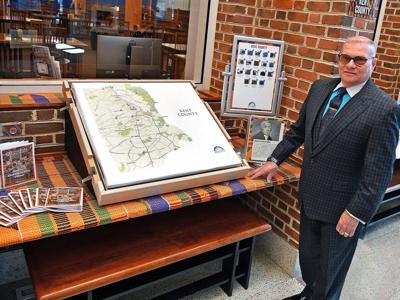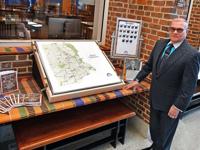DOVER, Del.- A new display in Kent County shines a spotlight on eighty-nine State of Delaware Historical Markers related to Black History.
The Delaware Public Archives in Dover has unveiled a new exhibition in its lobby, “Celebrating African American History in The First State” that features every State of Delaware Historical Marker related to Black history and the significance behind them.
“With this display, we honor some oft-overlooked accomplishments of Black Delawareans in every area of endeavor of our state’s history including civil rights, social change, politics, education, the arts, and athletics,” said Stephen Marz, State Archivist and Delaware Public Archives Director. “We hope all Delawareans will join us as we recognize and celebrate the great legacy of Delaware’s rich African American history through our Marker program.”
According to the agency, the State of Delaware Historical Marker Program began in 1931 when the General Assembly of Delaware passed an act establishing a permanent commission to erect historical markers throughout the state. These markers celebrate historic significance based on their influence, effect, or impact on the course of history or cultural development in Delaware. Eighty-eight official State of Delaware Historical Markers recognize African American landmarks, milestones, and achievements across the state.
As part of the display, visitors to the Archives can take home a 32-page, full-color booklet which contains locations, photos, and information about each historical marker that is related to Delaware Black history.
Large maps on display of each county and the city of Wilmington gives visitors a visual location of where the markers are physically located, and a video presentation of actual photos of these markers will be shown on the large widescreen monitor.
The Delaware Public Archives is open Monday – Friday from 8:30 a.m. to 4 p.m. and is located at 121 Martin Luther King Jr. Boulevard in Dover. The display is free and open to the public until mid-March 2024.


